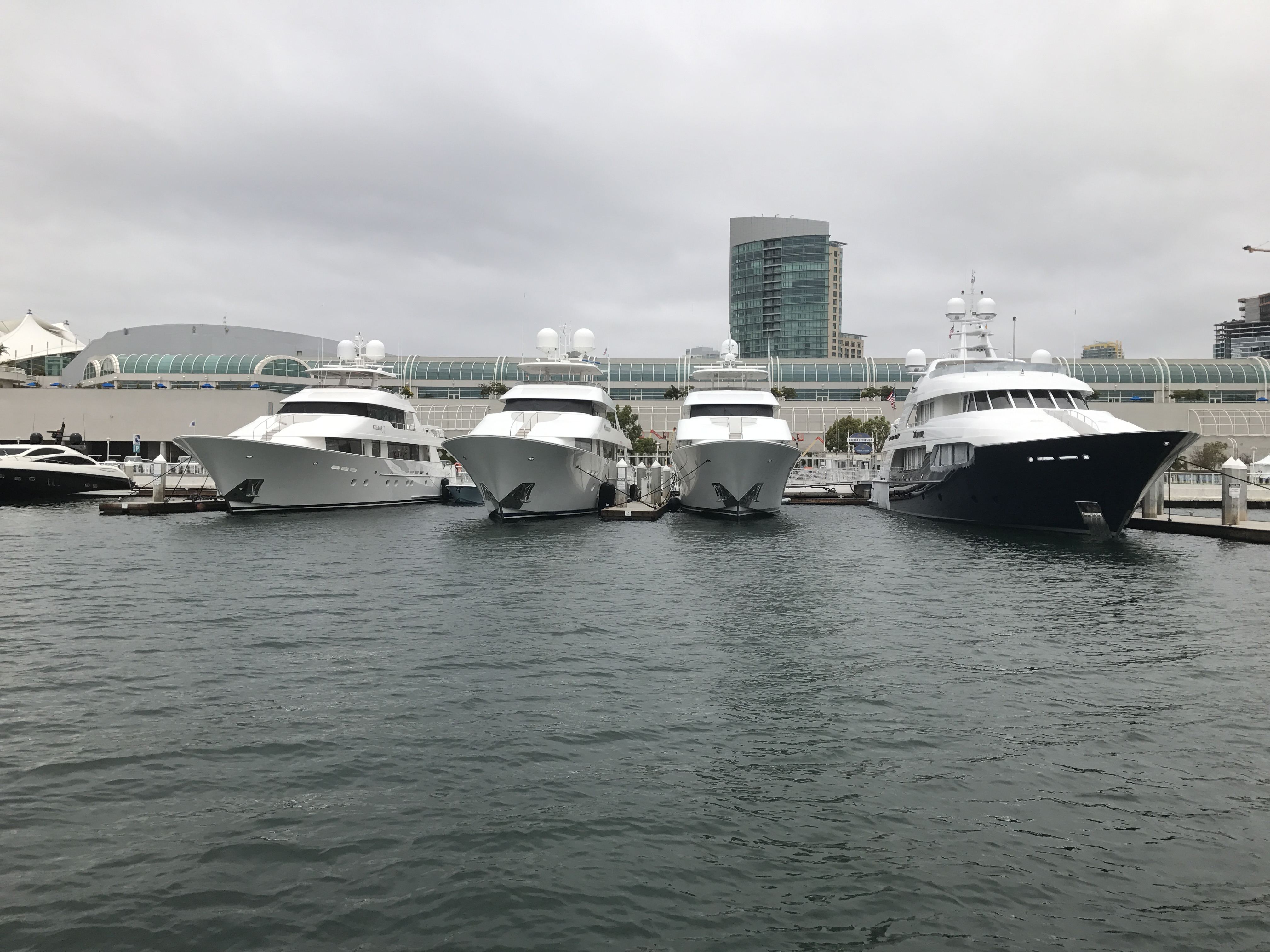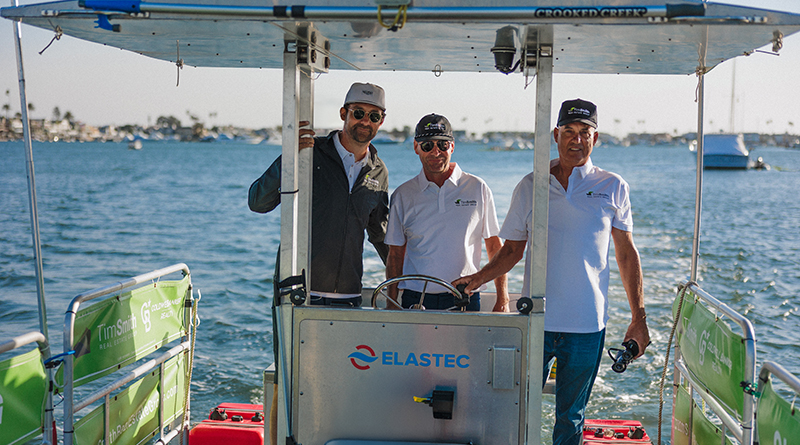SOUTHERN CALIFORNIA — The dreaded “T” word – yes, we’re talking taxes – is one of life’s two guarantees. So it’s no surprise boaters are subject to filling Uncle Sam’s coffers while docked at any of California’s marinas or harbors. One of those levies imposed upon boaters is the possessory interest tax, which effectively allows the state to collect on a boat owner’s use of a slip.
Possessory interest taxes have been in effect for some time now, but there are still questions as to how the government levy is executed. Who is the taxing authority? Is the tax assessed onto vacant slips? Are mooring permit holders subject to a possessory interest tax?
Can a marina pass the tax to its boating tenants if such a pass-through is not specified in a lease agreement? Should there be a consistent approach in the way marinas handle possessory interest taxes and keep boaters in the loop?
Possessory Interest Tax
Before delving into the way local marinas handle state levies it is important to first discuss the possessory interest tax.
A possessory interest tax is essentially a payment for occupying a specified space overseen by a public entity. Occupying a slip – and the space immediately below your boat or vessel – in a harbor qualifies as a possessory interest, meaning you, as a permit holder, would be subject to a possessory interest tax.
California’s Revenue and Taxation Code (Section 107) defines possessory interest as “possession of, claim to, or right to the possession of land or improvements that is independent, durable, and exclusive of rights held by others in the property, except when coupled with ownership of the land or improvements in the same person.”
The code language later continues: “Any possessory interest may, in the discretion of the county board of supervisors, be considered as sufficient security for the payment of any taxes levied thereon and may be placed on the secured roll.”
The city of Long Beach, in a welcome packet posted online and shared with boaters at local marinas, has an entire section dedicated to explaining possessory interest tax in layman terms. Such a tax, according to the official city document, has been in effect in some form since at least 1859.
It was in 1859 when the California Supreme Court ruled the mere possession of exempted government land or property was enough to establish a tax assessment.
California’s tax code was updated in 1937 to establish a possessory interest tax whenever there is private ownership occupancy of a public entity.
“California assessors have been required, by law, to value possessory interest for tax purposes,” the Long Beach explanatory document on possessory interest tax stated.
The tax can “pass through” from marina to slip renter, according to the city of Long Beach.
“In a private marina, the marina owner pays the tax and passes the expense to the boat owner in the slip fee,” Long Beach city staff stated in the welcome packet for boaters. “If the city paid the tax, slip fees would be raised to a level sufficient to cover the tax, so the boat owner pays under either scenario.”
The Assessor’s Office of Los Angeles and Ventura counties include boat slips on ocean marinas, public lakes or rivers as a taxable possessory interest.
All possessory interest taxes are assessed at the county level. Reach out to your local county assessor’s office for specific or individual questions of the way possessory interest taxes are applied to marinas and boaters.
Tidelands Fund
A possessory interest tax differs from paying into the local Tidelands Fund, meaning boaters often end up paying into two different accounts.
Taxes on slip rentals are redirected to county and state coffers for general services, whereas slip fees are distributed into Tidelands Funds, which sort of serves as a trust account to benefit local boaters. A port district’s decision to fund a free pumpout service, for example, might come from the local Tidelands Fund.
Possessory Interest Taxes and Marina Leases
A boater reached out to The Log and stated his marina only recently made him aware of a possessory interest tax. One of the questions he posed was whether a marina could pass a tax along to a boater tenant if it was not specified in the lease or otherwise put on notices.
What’s interesting here is whether there is consistency from marina to marina or harbor to harbor. A private marina operator might incorporate the tax assessment into the overall slip fee, while other venues might not step in between the boater and county assessor. At least one San Pedro area marina, according to a reader, did not incorporate the tax liability as part of the slip fee payment.
Boaters are nonetheless liable for the possessory interest tax, whether they are notified of it in their lease or not, according to a marina operator in San Diego. The San Diego County Assessor, for example, would randomly appear at a given marina to verify what slips are filled. Marinas rarely, if ever, get in between the county assessor and boater when it comes to possessory interest taxes, according to Sunroad Resort Marina’s Jim Behun.
“Possessory interest tax is what the County Assessor charges a business that is leasing port-owned property. It’s based on the value of the land and improvements,” Donna Ethington, a Wilmington liveaboard and marina employee, said in an email to The Log. “The assessor also charges a second tax on the value of fixtures. Neither tax considers vacant slips. Marinas charge slip fees based on their overall costs, which include rent to the port, utilities, wages, taxes, insurance, etc. So all boat owners pay a small portion of those taxes indirectly.
“Boat owners pay property taxes directly to the County Assessor based on the value of the vessel,” Ethington continued.
Empty Slips
What happens with an empty slip? Is there a tax still in effect? The short answer is a possessory interest tax only applies when a boater physically and legally occupies a slip.
A possessory interest tax, according to California’s Board of Equalization, applies when a private party comes into possession of public real property.
“While publicly owned real property is generally exempt from taxation, under certain conditions, the private, beneficial right to the possession of publicly owned real property is subject to separate assessment as a taxable possessory interest,” a Board of Equalization explanatory document on possessory interest tax stated.
The tax assessment ends as soon as the private possession of the slip ends, only to resume again when another boater fills the same space.
Your Local Assessor
The county assessor’s office can answer some basic questions about your possessory interest tax liability.
James Nguyen would be the person to reach at the Los Angeles County Office of the Assessor. His number is 213-893-0706.
Here are the phone numbers for the boating divisions of assessor offices in other counties:
- Orange: 714-834-2772
- San Diego: 858-505-6200
- Ventura: 805-654-2193
- Santa Barbara: 805-568-2550.
Parimal M. Rohit photo








5 Responses
Glad to see this article. I have been outspoken about this very subject since being in a Dana Point slip. These are my thoughts: (1) The person occupying a slip on Jan. 1st. of the year pays the tax for the entire year—even if he moved out the next month. (1) who pays the tax for temporary use of the slip, i.e. summer only renters and guest slips? (3) this is the most absurd and unfair tax system I have ever heard of. It is the very definition of “taxation without representation”. I attempted to organize a group to fight this egregious rip-off of boaters but apparently no one was interested so I gave it up. I’ve sold my boat now (got too expensive) so I don’t have to worry about it anymore; however, I’m glad the Colonists had more courage and fought for their rights; and, had their “Tea Party” to stand up to a corrupt Government.
Solution: Go sailing the day they check the slips, in some places Jan 1. Just ask around.
This tax will it be the same for keeping the boat in boat storage its like keeping in a dry dock??
I left CA back in 2013 because CA is a tax slave state.
Case law supports the assessment of possessory interest going back 150 years, so you need to get over the legal issues and move on to valuation. And yes, if you are reported as the lessee on Jan 1 you are 100% responsible for the following year’s taxes, July 1 to June 30, even if you leave and someone else slips in (this is known as concurrent use PI – crazy but valid – don’t blame the Assessor, blame the dems in Sac.). There is NO proration process for possessory interest like there is with all other real property under Prop 13. And, your boat is personal property subject to its own bill. For valuation, a PI is based on the present value of the rent and term. So $200/month for 2 years at an 8% discount rate is $2400 + $2376 = $4776 (the assessed value). Pretending a tax rate of 1.3% (to include specials) the annual tax bill would be $62.08. Really not that bad. And, some counties have a low value ordinance of $5000 so it can be very important to negotiate rent and term. If you did $200/month for a 10-year lease your assessment could be $15,943 with a bill of $207.25 per year (using the same assumptions). So do the math, and keep your term short, but not too short; if you sign a month-to-month lease the Assessor gets to use any term he/she can justify as anticipated. Two years is the best to be safe. Happy sailing and taxation!